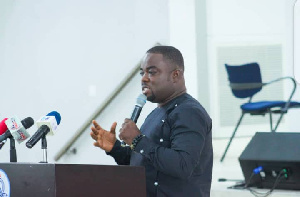 Executive Director of the Institute for Education Studies (IFEST), Peter Anti
Executive Director of the Institute for Education Studies (IFEST), Peter Anti
Executive Director of the Institute for Education Studies (IFEST), Peter Anti says the free Senior High School (SHS) policy has contributed to the exponential rise in females been enrolled in second cycle institutions.
According to him, the gender parity ratio of females to males enrolled in SHS prior to the introduction of the policy was less than 1. “I mean when you look at the number of males enrolled in SHS to females back then, you will get it. Within our cultural settings, most families are ready to pay for the education of the male child than that of the female.”
But with the introduction of free SHS, the gender parity ratio has risen to about 1.03 which means female enrolment is almost at par with male enrolment. “In some instances, you will see that more female students are assessing education over males.”
He noted that with equity being introduced into the educational system because of free SHS, students from less endowed schools now enjoy the privilege of top-class education.
On his accord, the only problem in the educational sector when it comes to equity is the issue of finance which is being addressed. “We are not doing well with financial equity and that is what we will be talking about,” he added.
Peter Anti noted that the main problem associated with the policy was the double-track system, which was as a result of the low teacher to student ratio. He advised the government to put in place measures to eliminate the system (double track).
He made this known in a discussion on e.TV Ghana’s FactSheet show hosted by Samuel Eshun.
The Free Senior High School (Free SHS) education policy in Ghana was a government initiative introduced in the 2017 September Presidential administration of Nana Akufo-Addo. The policy’s origination began as part of the President’s presidential campaign during Ghana’s 2016 election period and has become an essential part of Ghana’s educational system.
The policy’s core themes of access, equity and equality fulfil the United Nations modified Sustainable Development Goals, where member countries amalgamate those themes in their educational systems to certify adequate learning experiences for students.